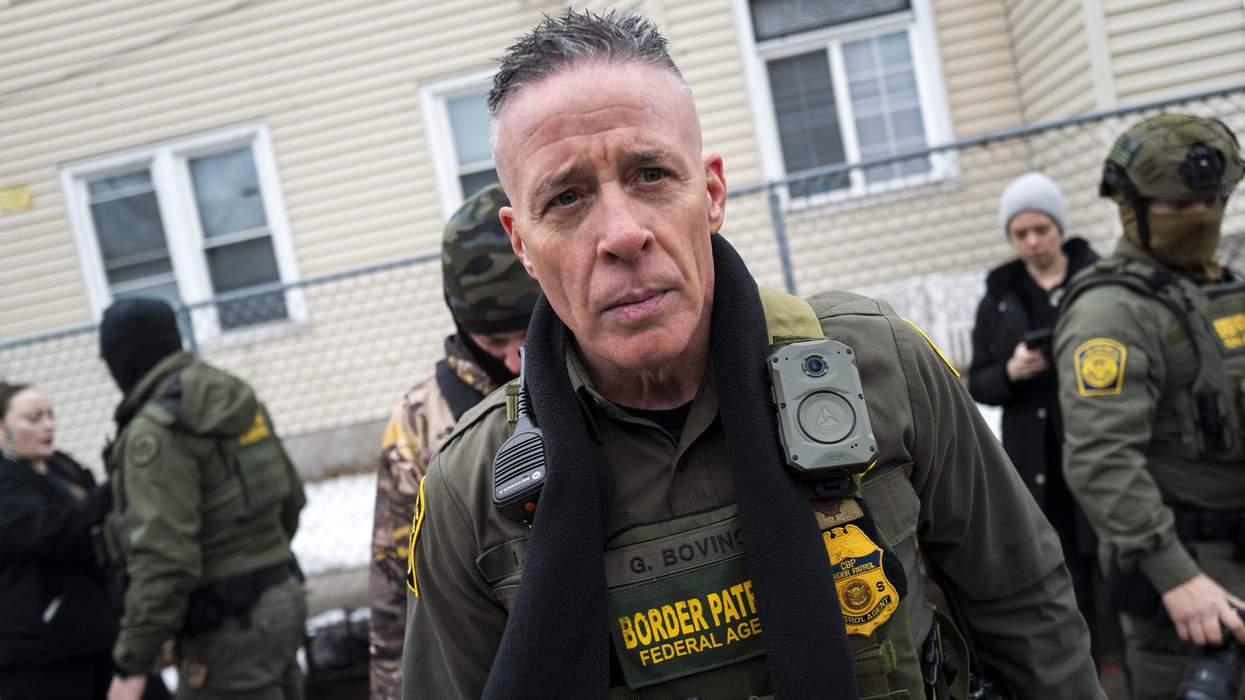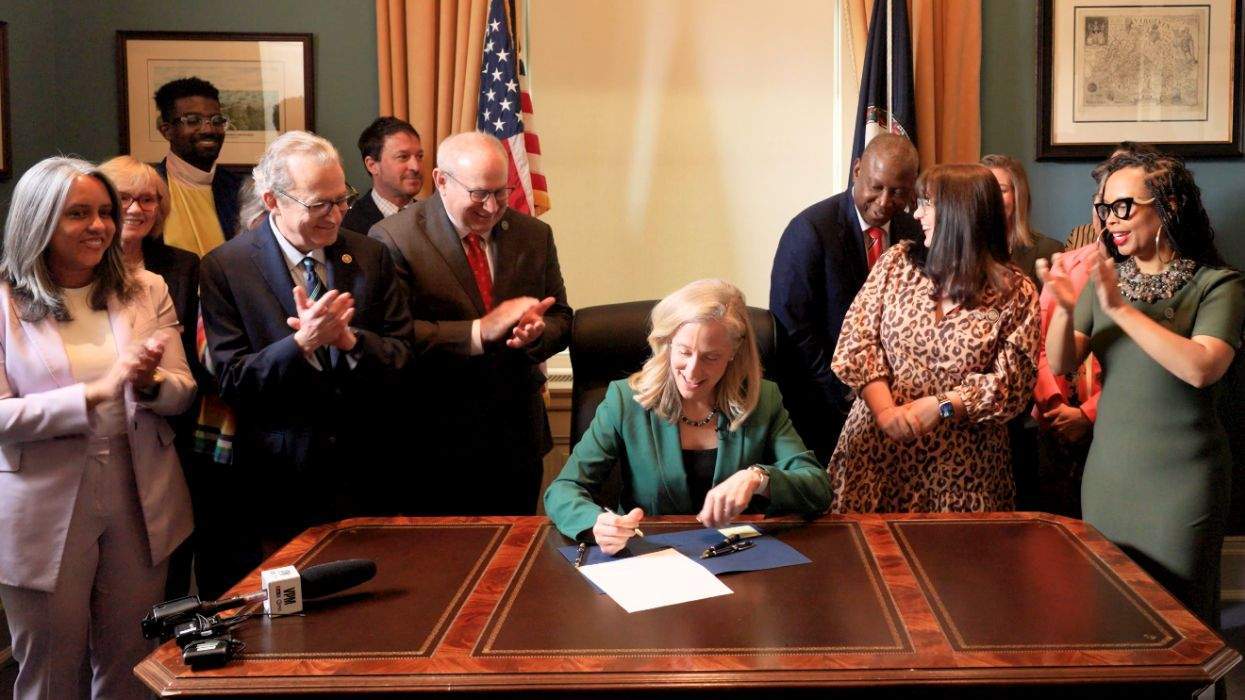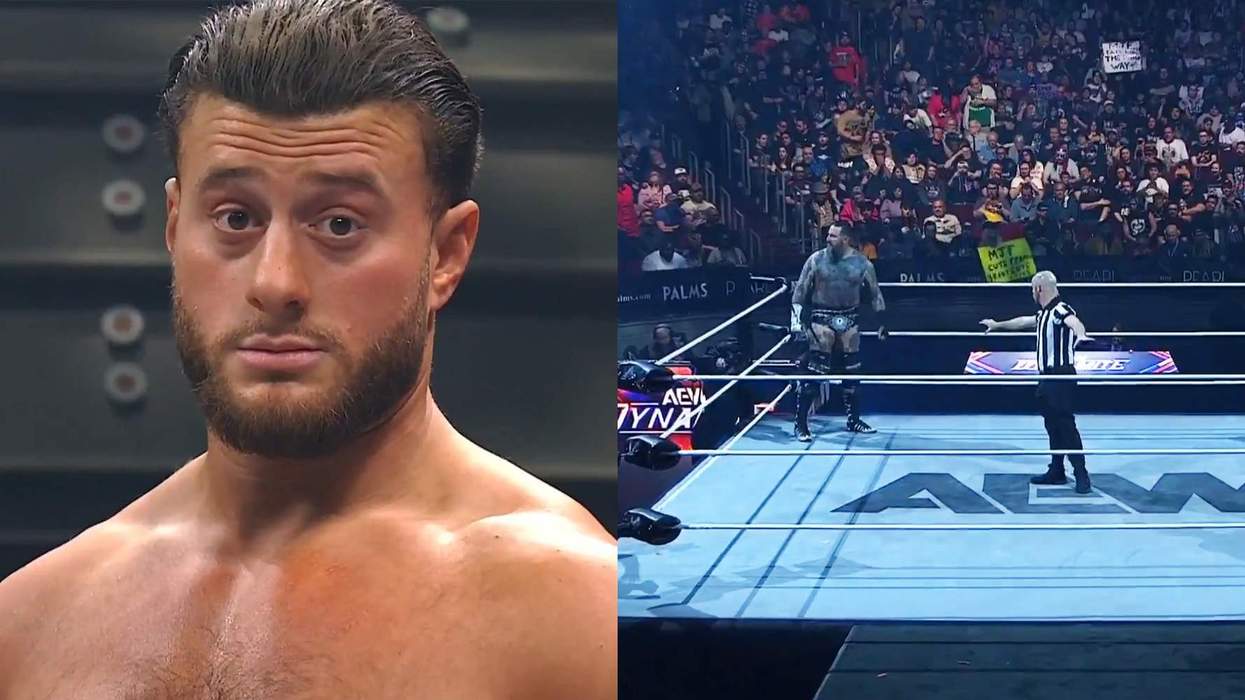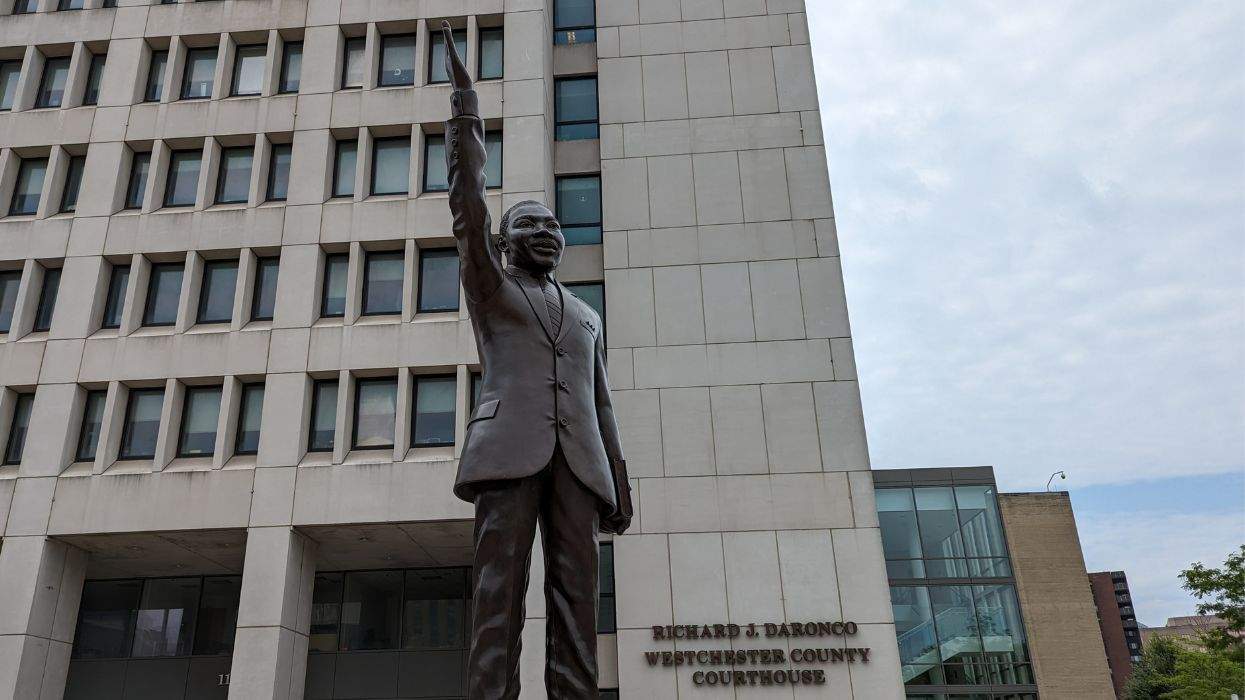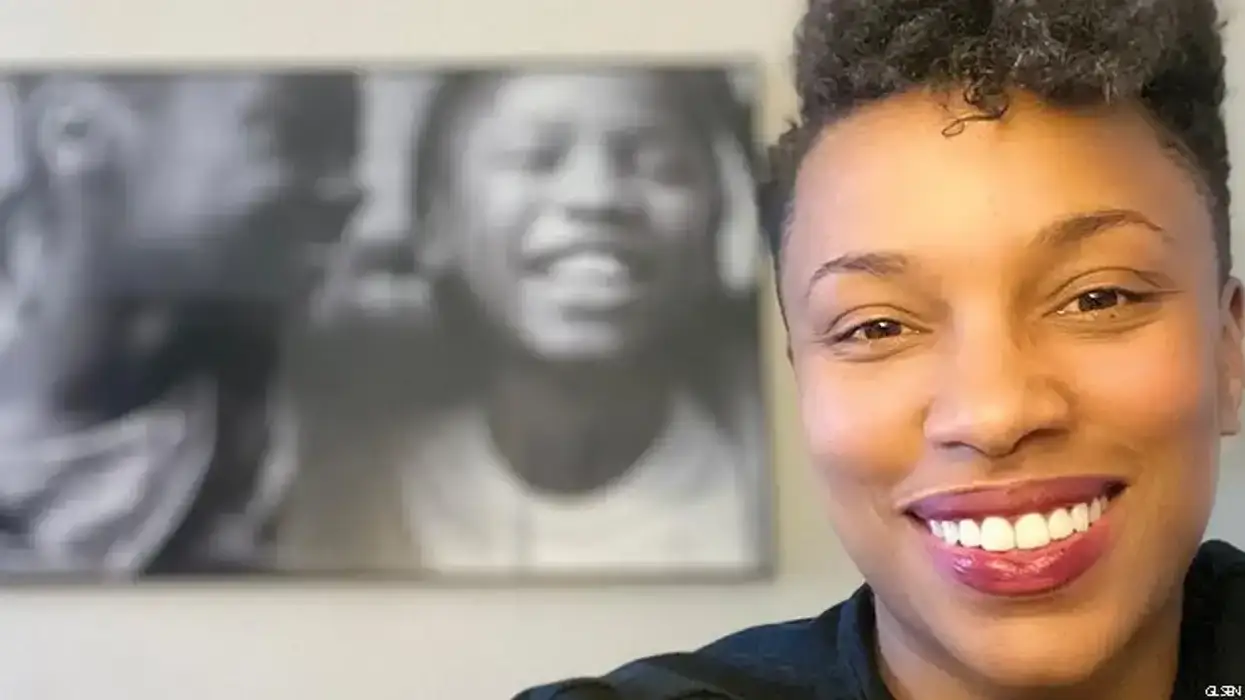Since last month's release of Happiest Season, the internet has been brimming with debates about the merits of the film and whether Abby (Kristen Stewart) should have ended up with Harper (Mackenzie Davis) or Riley (Aubrey Plaza), although a friendship among queer women who don't end up jumping into bed together is also a nice narrative. While I found the film absolutely delightful, because I'm a queer Jewish woman it made me think a lot about whose stories are being told in entertainment media during this time of year. Even though there are plenty of LGBTQ+ holiday movies to watch this season, I couldn't find one with characters exactly like me.
The difficulty I face in finding a queer holiday film to represent my Jewish faith is disappointing but not surprising, especially given that it was only this year that the Hallmark Channel released its first LGBTQ+-themed holiday movie. Film producers have also been slow to create Hanukkah movies in general, and even when they do, as Hallmark did last year, multiple critics have lamented that these films are "anti-Semitic ... Christmas movies with Jewish characters."
The lack of LGBTQ+ Hanukkah films grows from the media's historic reticence to portray Jewish people in well-developed roles. While today we have a long list of famous Jewish characters such as Midge Maisel (The Marvelous Mrs. Maisel), Rebecca Bunch (Crazy Ex-Girlfriend), and the family on The Goldbergs, as a kid growing up in the 2000s, I never really saw Jewish people in television or movies. As a young kid, the only film with a Jewish character I knew was Schindler's List. With respect to television, I was too young to know Seinfeld and The West Wing, and when I finally caught the reruns of Friends in my teenage years, I was disappointed by the lack of direct references to Judaism, even though Monica and Ross Geller are both Jewish. As American film and television scholar Vincent Brooks has said, the Gellers were only "conceptually Jewish" "or literally conceived, more than represented, as Jews."
The first time I ever saw myself represented as a Jewish person in the media was in 2014 when I was watching the Emmy-award-winning television show Transparent. The moment that the Pfefferman family started singing prayers that I had learned for my Bat Mitzvah, I realized that I had never seen my Jewish experience represented quite so authentically. And to make it even better, the show was queer, and by that time in my life, I had realized that I was too. Though there has rightfully been controversy over the decision to cast a cisgender man to play the role of a transgender woman, in my opinion, Joey Soloway did an excellent job portraying queer Jews in a realistic and relatable manner.
In the last few years, it's been easier to find queer Jews in the LGBTQ+ media landscape with television shows like Unorthodox and Broad City. With respect to films, there are perhaps even more examples. In 2017, Sebastian Lelio released Disobedience, a film that tells the story of Ronit and Esti, two Orthodox Jewish women who rekindle their romance after Ronit's father passes away. Similarly, 2018 marked the release of To Each, Her Own, a French film about a woman who seeks to come out to her conservative family. And of course, though much older, there is also 2002's Kissing Jessica Stein. But none of these films center around Hanukkah. In fact, when searching for Hanukkah films with LGBTQ+ characters, all I could find was a Polish short film called A Miracle of Hanukkah, a passing reference to Hanukkah in 2018's Love, Simon, and a brief scene at the end of 2017's Call Me by Your Name.
But what I want is a version of Happiest Season for the Jews. A story about a transgender man who spends eight nights trying to win over another Jewish man he met in a gay bar. Or, drawing on my own experience, a film where two queer girls try to improve their emotional connection by writing eight notes to each other about important moments in their lives, one to open on each night of Hanukkah. Come on, these stories just write themselves!
And it's not just Hanukkah. We need more LGBTQ+ media (whether it's holiday-themed or not) about other religious faiths, such as Islam, Hinduism, or Buddhism, or celebrations, such as Kwanzaa. It's time for producers to invest in LGBTQ+-inclusive films that recognize the variety of religious holidays that fall during this time of year. In a season when we are celebrating the holidays with our loved ones (albeit virtually), we all deserve to see ourselves represented.

